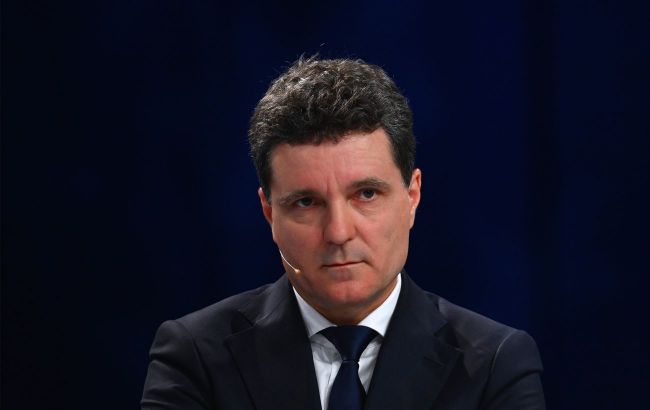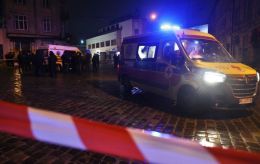Romanian president sees little risk of direct NATO-Russia war
 President of Romania Nicușor Dan (photo: Getty Images)
President of Romania Nicușor Dan (photo: Getty Images)
President of Romania Nicușor Dan believes that Russia is not ready to attack NATO and that the likelihood of the war spreading beyond Ukraine remains extremely low, he said in an interview with Digi24.
"I do not see Russia as capable of attacking NATO at the moment, but provocations will continue in their attempt to destabilize the situation. The risk of escalation into a direct military conflict is extremely small. The chances that the military conflict will spread beyond Ukraine are extremely low," Dan said.
He also emphasized that Moscow has long been waging a war against the West, using sophisticated technological tools to undermine trust in the democratic model.
"These are issues that have emerged over the past 3-4 weeks, but in reality, they started a war against the Western world a long time ago to sow distrust among the population toward the Western democratic model. They do this using very sophisticated technological tools," he noted.
The president added that, despite all the Kremlin's efforts, the West remains united in its support for Ukraine.
"It is good that we have Western solidarity with Ukraine. Russia, with its mediocre economy, is clearly trying to compensate for its military shortcomings by appealing to the population and the democratic society that makes decisions through voting, in a democratic way," Dan said.
He stressed that NATO countries are effectively deterring the aggressor.
"We are in a situation where we have to deter, and we are doing it well, together — that's what I mean," the president added.
Background
In a recent statement, Dutch Defense Minister Ruben Brekelmans stated that Russia is preparing for a large-scale war, as the country is shifting its economy to a wartime footing, increasing arms production, and mobilizing more troops than necessary for current combat operations.
"By 2030, Russia wants to be ready for a large-scale confrontation with NATO," he said.
Earlier, Ukrainian President Volodymyr Zelenskyy warned that Russia's next targets could be the Baltic states, Poland, or the Balkans.
On September 19, three Russian MiG-31 aircraft violated Estonian airspace over the Gulf of Finland for 12 minutes — an unprecedented incident for the region.
Following that, Polish Foreign Minister Radosław Sikorski stated at a UN Security Council meeting that Russia should not complain if its drones or aircraft are shot down during provocations.
NATO Secretary General Mark Rutte clarified that the decision to shoot down an aircraft would be made based on intelligence about the level of threat.
In response, Russian Ambassador to France Aleksey Meshkov warned that the downing of a Russian aircraft by NATO could mark the beginning of a military conflict.

